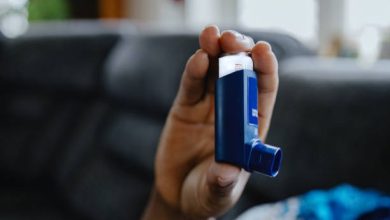My Quest for Equity in Colon Cancer Treatment


Imagine dedicating your life to making healthcare more equitable and accessible for everyone, especially those in marginalized communities. This is precisely what Angele Russell has done. With a rich background in public service and healthcare, Russell has become a beacon of hope and change in the realm of health equity. Her journey, marked by pivotal roles and impactful initiatives, showcases her unwavering commitment to ensuring that everyone, regardless of their background or location, has access to quality healthcare.
Russell’s journey began with her service as a Peace Corps volunteer in Tanzania, East Africa. There, she worked as an HIV volunteer, laying the groundwork for her future endeavors in public health. Following her graduation from law school, she worked on Capitol Hill, gaining experience and insights into the healthcare system. Her career trajectory took her to various organizations focused on public health, each role reinforcing her commitment to health equity.
“My entire career has led me to this work in health equity, ensuring that people who look like me and those in precarious situations or different zip codes have access to quality healthcare. Right now, I’m focusing on that work within colorectal cancer,” Russell tells BlackDoctor.org.
Russell is currently the Senior Director of Partnerships and Health Equity at the Colorectal Cancer Alliance. Her work is deeply personal, driven by her desire to help people who look like her and those who often face barriers to healthcare.
“Colorectal cancer is a preventable disease. My number one message is to get screened and consider your family history. You can prevent colorectal cancer by removing polyps if they exist. Screening is the number one way to prevent cancer. Many people, especially in our community, are not fully aware of this,” Russell shares. “Colorectal cancer usually starts with polyps in the colon, which can develop into cancer if not removed. The scary thing is that colorectal cancer is projected to be the number one cause of cancer death by 2030 for people under 50, with even more alarming rates for the Black community, Alaska Natives, American Indians, and Hispanic Americans. This should highlight that colorectal cancer affects people of all ages.”
Through her work, Russell hopes to create awareness that colorectal cancer is no longer an “old person’s disease.” The rise in cases among younger people underscores the urgent need for awareness and early screening.
“The guidelines used to recommend starting at 50, then the Preventive Services Task Force reduced it to 45. However, family history is a significant reason to get screened earlier. If you have a first-degree relative with colorectal cancer or a family history of it, you need to get screened earlier than 45,” Russell advises. “For example, my friend Shannon Sylvain was diagnosed at 31 and died at 33. She had symptoms at 21, but her doctor attributed them to her diet due to her age. It turned out she had a family history of colorectal cancer that she didn’t know about until her diagnosis.”
Consequently, Russell believes self-advocacy and awareness of your risk factors are crucial steps toward preventing colorectal cancer.
“This underscores the importance of talking to your family and being honest with your doctor. Knowing your family history can counter the 45-year-old screening recommendation. You’re at higher risk if you have certain genetic mutations, IBS, or Crohn’s disease. Persistent stomach issues should be diagnosed properly,” she shares. “Educate yourself. Our website has information and a free screening quiz available in Spanish. Be okay with seeking a second opinion if something doesn’t feel right. Doctors are human and may make mistakes. It’s essential to trust your gut and seek additional advice if needed. Colorectal cancer symptoms can mimic other conditions, making it important to track symptoms and advocate for yourself, especially during pregnancy. If something feels off, seek medical advice and a second opinion if necessary. Your life is at stake, and it’s crucial to ensure you receive the best care.”
The Colorectal Cancer Alliance also offers various support groups and resources to help those affected by colorectal cancer. The Never Too Young advisory board supports young people diagnosed with the disease, while the BOSS (Black Outreach and Subcommittee for Screening) advisory committee focuses on Black Americans affected by colorectal cancer. These groups provide valuable resources, support, and advocacy, ensuring that no one has to face this journey alone.
As Russell continues to lead the charge in making colorectal cancer equitable for all, she’s excited about several upcoming initiatives aimed at improving colorectal cancer outcomes within the Black community. One notable partnership is with Cottonelle and BLKHLTH, which provides free FIT (fecal immunochemical test) kits for colorectal cancer screening.
RELATED: Q&A: Are Black Americans Facing a Silent Crisis with Colorectal Cancer?
“We address barriers like transportation, access to colonoscopies, and financial assistance. We’re also running campaigns like the one featuring Charlamagne tha God to raise awareness. In Philadelphia, our Cycles of Impact project aims to screen 2,500 Black Americans for colorectal cancer over three years, in collaboration with Independence Blue Cross,” Russell adds.
Russell’s advice is to start within your circle if you’re passionate about health equity and want to make a difference.
“Share information and hold people accountable in your circle. Studies show that trusted individuals often influence healthcare decisions. You can make a big difference by educating those around you. We also have many volunteer opportunities at the Alliance, providing resources to spread awareness. And take care of yourself, both mentally and physically,” Russell concludes.
For more information and resources, visit the Colorectal Cancer Alliance or call their helpline at 877-422-2030 to speak with a live navigator.




